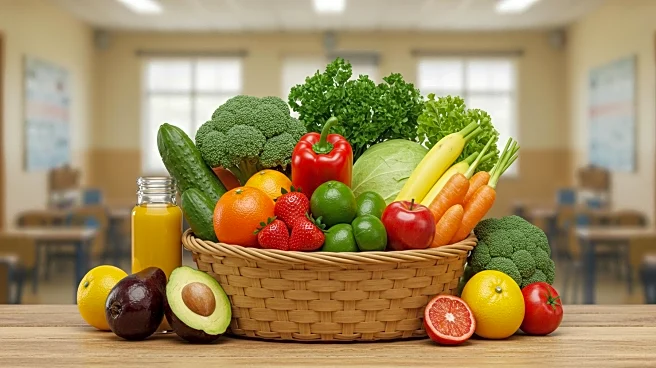What's Happening?
In Sragen, Central Java, Indonesia, more than 360 people have fallen ill after consuming free school meals, marking the largest food poisoning incident in President Prabowo Subianto's free meals program. The program, launched in January, has been plagued by similar incidents, affecting over 1,000 people across the country. The contaminated meal included turmeric rice, omelette ribbons, fried tempeh, cucumber and lettuce salad, sliced apple, and milk. Authorities have halted food distribution from the implicated kitchen pending lab results. The National Nutrition Agency has raised kitchen operation standards following previous cases.
Why It's Important?
This incident raises critical concerns about food safety and the effectiveness of large-scale nutrition programs. The free meals initiative, designed to improve child nutrition, has faced repeated food safety challenges, potentially undermining public confidence in government health interventions. The program's rapid expansion and significant budget allocation underscore the need for robust safety measures to protect recipients. The recurring food poisoning cases highlight systemic issues in food preparation and distribution, necessitating urgent reforms to ensure the program's success and safeguard public health.
What's Next?
The government is conducting laboratory tests to identify the contamination source, which will inform future safety protocols. The National Nutrition Agency may implement stricter guidelines and oversight to prevent further incidents. The program's expansion plans, aiming to reach 83 million recipients, could be affected by public and political pressure for improved safety measures. Stakeholders, including parents and health officials, are likely to demand accountability and transparency in the program's management, influencing future policy decisions.









